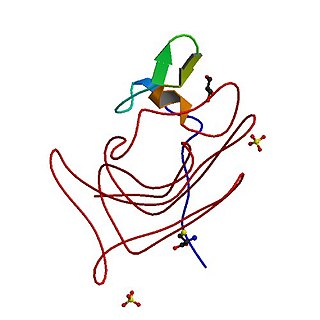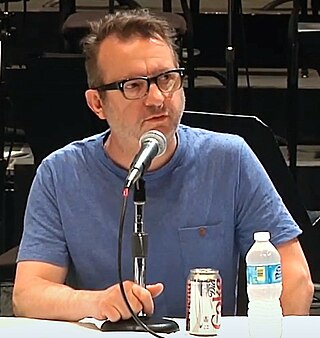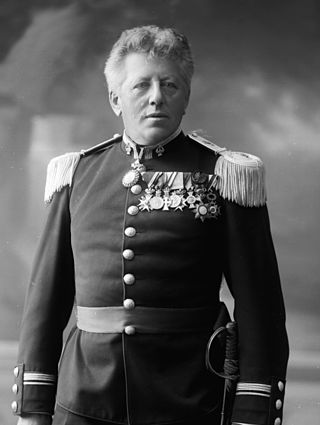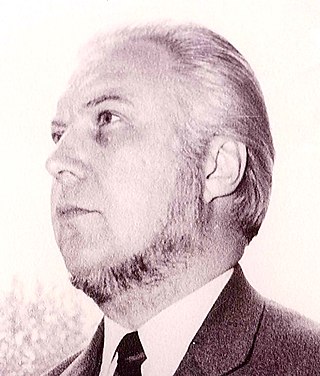Related Research Articles

Haemophilia, or hemophilia, is a mostly inherited genetic disorder that impairs the body's ability to make blood clots, a process needed to stop bleeding. This results in people bleeding for a longer time after an injury, easy bruising, and an increased risk of bleeding inside joints or the brain. Those with a mild case of the disease may have symptoms only after an accident or during surgery. Bleeding into a joint can result in permanent damage while bleeding in the brain can result in long term headaches, seizures, or a decreased level of consciousness.

A string orchestra is an orchestra consisting solely of a string section made up of the bowed strings used in Western Classical music. The instruments of such an orchestra are most often the following: the violin, which is divided into first and second violin players, the viola, the cello, and usually, but not always, the double bass.

Mark-Anthony Turnage CBE is a British composer of classical music.

Haemophilia A is a genetic deficiency in clotting factor VIII, which causes increased bleeding and usually affects males. In the majority of cases it is inherited as an X-linked recessive trait, though there are cases which arise from spontaneous mutations.
Roman Festivals, P 157 is a tone poem in four movements for orchestra completed in 1928 by the Italian composer Ottorino Respighi. It is the last of his three tone poems about Rome, following Fountains of Rome (1916) and Pines of Rome (1924), which he referred to as a triptych. Each movement depicts a scene of celebration in ancient and contemporary Rome, specifically gladiators battling to the death, the Christian Jubilee, a harvest and hunt festival, and a festival in the Piazza Navona. Musically, the piece is the longest and most demanding of Respighi's Roman trilogy.

Ole Olsen was a Norwegian organist, composer, conductor and military musician.

Factor 8: The Arkansas Prison Blood Scandal is a feature-length documentary by Arkansas filmmaker and investigative journalist Kelly Duda. Through interviews and presentation of documents and footage, Duda alleges that for more than two decades, spanning the 1970s and 1980s, the Arkansas prison system profited from selling blood plasma from inmates infected with viral hepatitis and HIV. The documentary contends that thousands of victims who received transfusions of a blood product derived from these plasma products, Factor VIII, died as a result.
In April 1991, the doctor and journalist Anne-Marie Casteret published an article in the French weekly magazine the L'Événement du jeudi showing that the Centre National de Transfusion Sanguine knowingly distributed blood products contaminated with HIV to haemophiliacs in 1984 and 1985, leading to an outbreak of HIV/AIDS and hepatitis C in numerous countries. It is estimated that 6,000 to 10,000 haemophiliacs were infected in the United States alone. In France, 4,700 people were infected, and over 300 died. Other impacted countries include Canada, Iran, Iraq, Ireland, Italy, Japan, Portugal, and the United Kingdom.
Michael Rosenzweig born 1951 in Oranjezicht, a suburb of Cape Town), and grew up on Hiddingh Estate in the Cape Town suburb of Newlands. He is a South African composer, conductor and jazz musician.

In the 1970s and 1980s, a large number of people – most of whom had haemophilia – were infected with hepatitis C and HIV, the virus that leads to acquired immune deficiency syndrome (AIDS), as a result of receiving contaminated clotting factor products. In the United Kingdom, these were supplied by the National Health Service (NHS) with many of the products being imported from the USA.

Jonathan David Little FCLM, FISM, FRSA is a contemporary classical composer, arts educator and author on cultural history based in the UK and Australia. In 2008, his first CD was voted one of the top recordings of the year by US Fanfare magazine. He was subsequently featured in a news article in Musical Opinion in early 2009. As a composer, he first came to prominence in America in 2006 when The American Society of Composers, Authors and Publishers (ASCAP) ran an article on him having five of his works accepted for recording (2004–07) by the US-headquartered French contemporary music label ERM, aimed at showcasing international contemporary composers. He was awarded the Collard Fellowship of the Worshipful Company of Musicians in 2011, and in 2012 was elected a Fellow of the Royal Society of Arts. He was appointed inaugural Professor of Composition and Music History at the University of Chichester in 2017, and Emeritus Professor from 2019.
Eleanor Deanne Therese Alberga is a Jamaican contemporary music composer who lives and works in the United Kingdom.

Yves Ramette was a French post-romantic composer and organist.
The Penrose Inquiry was the public inquiry into hepatitis C and HIV infections from NHS Scotland treatment with blood and blood products such as factor VIII, often used by people with haemophilia. The event is often called the Tainted Blood Scandal or Contaminated Blood Scandal.
Andrew March is an English composer. He was the winner of the first-ever Masterprize Composition Competition with his piece Marine — à travers les arbres. Andrew studied composition at the Royal College of Music with Jeremy Dale Roberts, graduating in 1996.
Dani Howard is a British composer originally from Hong Kong, where she attended the South Island School.

John David Cash was president of the Royal College of Physicians of Edinburgh. He also served as Medical Director at the Scottish National Blood Transfusion Service from 1979 to 1988. In 1992 he was elected a member of the Aesculapian Club.

Marine – à travers les arbres is an orchestral composition by the English composer Andrew March. It was the winning piece in the inaugural Masterprize International Composition Competition held in 1998 after having been selected from 1,318 entries from over 60 countries. The impressionistic work has been performed 13 times throughout the world.

R (March) v Secretary of State for Health was a 2010 judicial review which challenged the UK Department of Health's decision not to implement Recommendation 6(h) of the Archer Independent Inquiry. The case was important in developing the doctrine of error of fact in public law which previously had not readily been the subject of judicial intervention.

The HIV Haemophilia Litigation [1990] 41 BMLR 171, [1990] 140 NLJR 1349 (CA), [1989] E N. 2111, also known as AMcG002, and HHL, was a legal claim by 962 plaintiffs, mainly haemophiliacs, who were infected with HIV as a result of having been treated with blood products in the late 1970s and early 1980s. The first central defendants were the then Department of Health, with other defendants being the Licensing Authority of the time, (MCA), the CSM, the CBLA, and the regional health authorities of England and Wales. In total, there were 220 defendants in the action.
References
- 1 2 "Thursday – Verity Sharp, Late Junction – BBC Radio 3". BBC.
- ↑ "Sanguis Venenatus – Andrew March & Moravian Philharmonic Strings Song – BBC Music". BBC. Archived from the original on 2018-08-02.
- ↑ "Composers – Alliance Publications, Inc". apimusic.org.
- 1 2 Rosenberg, Donald (March 2013). "Eight works for string orchestra from four different orchestras". Gramophone. UK. Retrieved 2020-04-19.
- 1 2 3 Issac, Stuart (20 March 2010). "Reviews: March 20th 2010, Todmorden Town Hall". todmordenorchestra.org.uk. Todmorden Orchestra. Archived from the original on 19 March 2023. Retrieved 2020-04-22.
The second part began with March's Elegy 'Sanguis Venenatus' (Tainted Blood), his first-hand musical metaphor for thousands of haemophiliacs given contaminated blood.
- ↑ "Sanguis Venenatus" (2012) [Audio CD]. In Dimensions : works for string orchestra, Series: NV5895 Navona Records. London: RCM Library Catalogue, Royal College of Music.
- 1 2 "A service to mark the 40th anniversary of the coming into effect of the Chronically Sick and Disabled Persons Act (1970)" (PDF). Westminster Abbey. 30 March 2011. Retrieved 2020-04-18.
- ↑ de Bruxelles, Simon (16 January 2009). "Horrified twitchers watch as starving buzzard kills rare phalarope". The Times. London. Retrieved 2020-04-19.
- ↑ "Buzzard kills rare visitor to British shores". The Guardian. London. 16 January 2009. Retrieved 2020-04-19.
- ↑ Bok, Amanda, ed. (April 2013). EHC Newsletter (Report). Brussels: European Haemophilia Consortium (EHC). p. 27. Retrieved 2020-04-20.
Andrew March: Elegy dedicated to victims of contaminated blood
- ↑ Dimensions – Works for String Orchestra. OCLC 1114084658.
- ↑ "News updates for Sanguis Venenatus". 2012-08-28. Archived from the original on 2018-08-23. Retrieved 2020-04-24.
- ↑ "Classical Discoveries". WPRB 103.3 FM. 28 November 2012. Retrieved 2020-04-24.
Sanguis Venenatus (Tainted Blood)
- ↑ "Playlist Classic FM South Africa" (PDF). 2013-01-14. Archived from the original (PDF) on 2018-08-23. Retrieved 2020-04-25.
- ↑ "Sanguis Venenatus, elegia per a orquestra de corda". Catradio FM. Catalunya Ràdio. 24 January 2013. Retrieved 2020-04-25.
- ↑ "Spellista P2 Klassiskt (Playlist)" (PDF). 2005-04-30. Archived from the original (PDF) on 2017-01-15. Retrieved 2020-05-02.
- ↑ "Spelningar av Andrew March med låten Sanguis Venenatus". Radiofy (in Swedish). 25 February 2013. Retrieved 2020-05-02.
Här finner du alla spelningarna sedan 2013–02–25 av Andrew March med låten Sanguis Venenatus. Låten är 06:03 lång och har spelats 66 gånger bland våra 437 radiokanaler.
- ↑ "MR3 Rádió Bartók" (PDF). 16 January 2014. Archived from the original (PDF) on 2019-05-01. Retrieved 2020-05-02.
- ↑ BBC Radio 3 [@BBCR3MusicBot] (9 October 2015). "Now Playing March, Moravian Philharmonic Strings – Sanguis Venenatus" (Tweet) – via Twitter.
- ↑ "Pièces – Radio–classique" (PDF). 1 December 2017. Archived from the original (PDF) on 2019-12-16. Retrieved 2020-05-02.